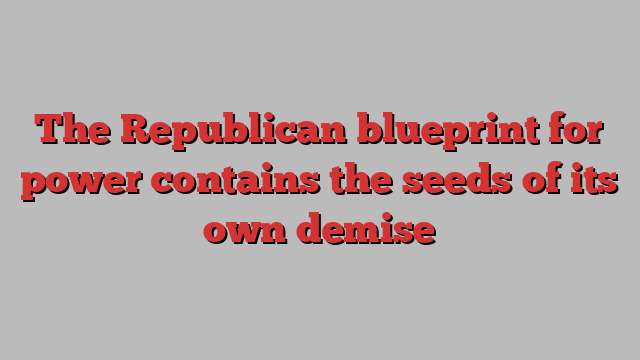
Unlock the US Election Countdown newsletter for free
The stories that matter on money and politics in the race for the White House
The writer is the Levin Professor of History and Public Affairs at Yale University, and author of ‘Bloodlands’ and the forthcoming ‘On Freedom’
This week, Republicans reminded us of the alternatives to republics, hosting a convention that showed how the American one could be brought down. They summoned up three variants of collapse: tyranny, oligarchy and anarchy.
A tyrant emerges through a system that he breaks. Long before the assassination attempt on him last weekend, Donald Trump had transformed the Republican party into a cult of personality. As a convicted criminal running for office, he undoes the expectation of any rule of law. He has challenged the principle of succession in the US by encouraging the mob that attacked the Capitol on January 6, 2021. He claims to be winner of all elections, regardless of the vote, and that he should be allowed to remain president indefinitely. His vice-presidential nominee, JD Vance, endorses his defiance of vote counts, past and present. Trump promises mass deportations, detention camps and military tribunals, actions that would change the American regime type.
Yet the tyrant might be less important than the oligarchs behind him. Whereas Trump can slip through the gaps of the legal system, his backers waltz through the cellophane barrier between money and politics. The right metric for predicting Trump’s vice-presidential pick was simple: what do these supporters want?
The most important is Vladimir Putin, whose propagandists adore Trump and celebrate Vance. David Sacks, a Silicon Valley investor, included Russian propaganda tropes in his speech at the convention. Like Elon Musk, whose changes to X, his social media platform, have helped the Russian cause, Sacks supported Vance. In the background is Peter Thiel, without whom Vance would not have become a wealthy politician.
These oligarchs’ own platform is anarchy. If there is a general rather than personal explanation for their support of a peace settlement between Russia and Ukraine, with its implicit territorial reward for Russian aggression, it is likely in the desire to bring down order: to create international chaos. The war in Ukraine, an atrocity in itself, is also a test case for the aspiring global anarchists. Their man Vance refused to meet Volodymyr Zelenskyy at the Munich Security Conference.
Ukraine is defending basic principles of international law, which is that one country may not invade another and seize its territory. Ukraine also defends the international order in a broader, geopolitical sense, demonstrating that major offensive operations are difficult. Ukrainians are thereby deterring China, making a world war less likely.
By defying a nuclear power, Ukraine is also making nuclear proliferation and thus nuclear war much less likely. Were it allowed to lose, countries in Europe and Asia would likely build nuclear weapons. In short, forcing Ukraine into surrender, which seems to be the Republican platform, will lead to all hell breaking loose around the world.
The relevant oligarchs also appear to favour anarchy at home. Only the state can collect taxes, so making it dysfunctional serves an interest in maximising wealth. If it becomes weak enough, it can, like Russia, become an oligarchy in which a few rich men can openly call the shots. A failing state will not regulate social media, which will make it easier for the digital oligarchs to profit by anarchising our daily lives. Chaos in the US would bring down the worth of the dollar, a nice scenario for those who hold crypto assets and are betting on a revival.
The anarchy can seem fun, at least for a while. With some luck, chaos can bring political fruit. At a convention, where one spectacle soon displaces the next, these different guises of democratic collapse can give one another cover. The strongman act of Trump and Vance distracts from their blatant dependence on the wealthy. Their threat to deport migrants shrouds the reality that none of the relevant oligarchs was born in the US, that Trump married two migrants and that Vance married the daughter of migrants.
In practice, though, the Republicans’ anti-republic is contradictory. The different variants of repression can be equally celebrated so long as they are all directed against an imagined enemy. But the plan to fire tens of thousands of civil servants (anarchy) would get in the way of deporting millions of people (tyranny). As the billionaires claim power ever more openly (oligarchy), they put pressure on the aspiring authoritarians who are supposed to be the strongmen (tyranny). The people who want a strongman don’t want him to be a puppet. Signs of strain were certainly evident at the convention.
It might seem unusual to evoke these classical Greek concepts. But the American political order was founded by people who knew and used them, and US history has reached the point where they once again apply. When Republicans cede the republic, this could create an opportunity for Democrats. Almost nothing in the Republican platform is popular. Almost no one desires regime change. Democrats who stand behind the republic — while offering an exciting ticket and a coherent future — would seem to have every chance of winning in November.